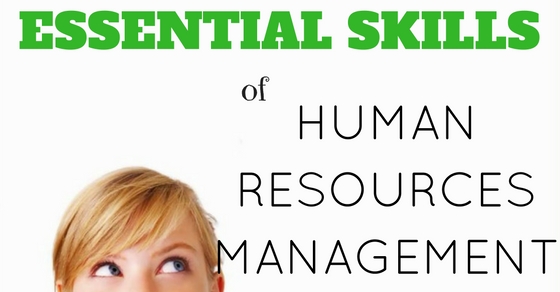
The Fair Work Act Australia – Are You Ready?
The Fair Work Act commences on 1 July 2009 and has sweeping changes that dramatically alters the landscape of employee relations as we know it.
A second tranche of requirements begins 1 January 2010 with the introduction of the new Awards Modernisation.
There are increased entitlements to employees and obligations that business must comply with.
This is a bullet point overview of the legislation which is not comprehensive and you are urged to take advice for your own particular circumstances.
1. Fair Work Act starts 1 July 2009;
2. Contains 10 National Employment Standards (NES);
3. Modern Award System;
4. Legislation contains far reaching changes for every small business;
5. Further Changes 1 January 2010.
Table of Contents
Summary:
1. Hours of Work
- 38 ordinary hours of work; Awards and agreements may allow for averaging of hours; plus Reasonable additional hours.
2. Annual Leave
- 4 weeks (20 days) per year plus an extra week for shiftworkers;
- Proportional (pro-rata leave) for part-time employees.
3. Personal/Carers Leave
- Full-time/Part-time employees 10 days paid personal carers leave per year and 2 days paid compassionate leave per occasion.
- Casuals 2 days unpaid personal carer’s leave.
4. Community Service Leave
- 10 days unpaid leave for eligible community service.
5. Parental Leave (1 January 2010)
- Both parents entitled to separate periods of up to 12 months unpaid parental leave;
- One parent can apply for an additional 12 months leave (24 months leave in total) that can only be refused on reasonable business grounds.
6. Long Service Leave (no changes)
7. Right to request flexible working arrangements
- Parents with responsibility for a child under school age may request a change in working arrangements to assist with the care of the child,
- The employer may refuse the request only on reasonable grounds.
- The Employers decision will not be subject to review (yet).
8. Public Holidays
- Employees are entitled to a day off on public holidays;
- Employer may make a reasonable request for the employee to work;
- The payment of penalty rates is derived from awards;
- There will be further changes to penalty rates in the award modernisation process that begins 1 January 2010.
9. Fair Work Information Statement
- An employer must provide a Fair Work Australia Information Statement to all new employees on commencement of employment with the employer;
- Starts 1 January 2010;
- Fair Work Information Statement has yet to be written.
- No requirement for existing employees
10. Termination of Employment
- Notice periods by the employer remain unchanged and must be in writing;
- A Fair Dismissal Code has been introduced that is the accepted guideline for employers to comply with;
- Exclusion for unfair dismissal reduced from 100 to 15 employees;
- Remedy for unfair dismissal emphasis on reinstatement rather than compensation.
Redundancy
1. Operational reasons must be genuine such as;
- Job no longer required to be performed by anyone;
- The employer has complied with the consultation requirements;
- It was not reasonable in all the circumstances to redeploy the employee within the entity or an associated entity of the employer.
- Can be investigated to see if the redundancy was genuine;
- If an employee was dismissed for performance reasons there must be an audit trail demonstrating that the process was managed within accepted guidelines and the law.
- One warning is enough however you must have proof and an audit trail;
- Important to diarise all employee discipline and performance matters.
Union Right of Entry Expanded
- Official can enter for OHS, a suspected contravention of the Act, modern award, enterprise agreement, workplace determinations;
- Official may inspect work, processes, objects or inspect and copy relevant records including non-member records and interview employees who are A588g.comto be members and agree;
- an official may enter to hold discussions with employees performing work on the premises who are eligible to be members and who wish to participate in discussions;
- Unions can now enter workplaces that are award free (not covered by an award).
Transfer of busines
- New term replacing transmission of business;
- Now covers outsourcing and company re-organisations;
- 12 months previous limitation removed so transferring instruments now continue until they are terminated or replaced;
- Where an employee transfers between associated entities (with no more than a three-month break between the two employments) or because s/he is a transferring employee in a transfer of business, service with the first employer counts as service with the second, but although any break does not count as service, it does not break continuity of service.
Modern Award System
Some features of the new system include:
- Wages (classification rates in modern awards and the federal minimum wage) are reviewed annually;
- The minimum wages panel must also make a ‘national minimum wage order’ applying to all employees not under a modern award or agreement.
- These minima must also cater for trainees, juniors and the disabled.
- Modern awards may contain other terms that supplement the NES.
- Some modern awards allow casual employees to elect to become part time employees after 6 or 12 months service and the employer does not have right of refusal.
Business Concerns
- De-facto reintroduction of pattern bargaining;
- Awards cover all employees earning up to $100,000;
- Good faith bargaining and union leverage;
- Modern Awards contain significant wages and allowances increases (Cleaning industry 16% increase in costs);
- Some awards allow casual employees the right to covert to part time employment after 6 or 12 months and the employer hasa no right of refusal;
- Significant union demands for Collective Agreements where they can be co-respondents requiring increased employer time, effort and increase in wages.
What you can your BUSINESS do?
- Minimise you employment risks;
- Minimise your corporate clients business risks;
- Conduct an Human Resource Compliance Audit;
- Engage Specialist firm like Biz Momentum to review and minmise your business risk;
- Do not think you will not be audited and are safe.


